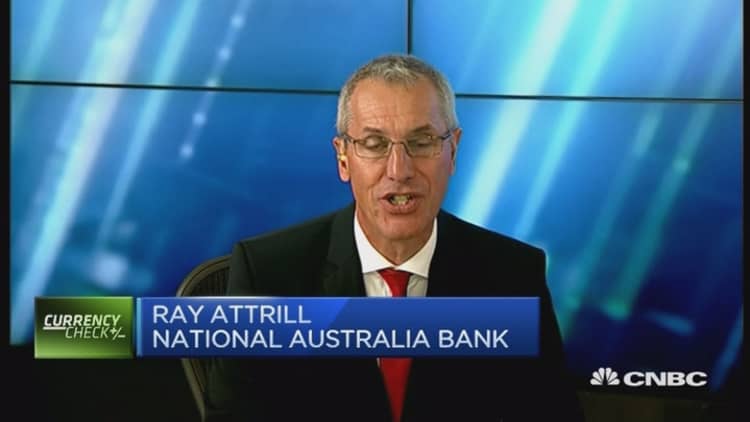Japanese Prime Minister Shinzo Abe has defended the Bank of Japan's handling of monetary policy, after the central bank's surprise move into negative interest rates unsettled global markets.
Abe told Japanese parliament that he trusted BOJ Governor Haruhiko Kuroda's handling of the economy, saying that it was up to the central bank what policy instruments it used, and that he believed the central bank would make progress toward its 2 percent inflation goal.
Dow Jones reported that Abe was responding to an opposition member of parliament who had questioned the shock January 29 move by the BOJ to set interest rates at below zero - a change that sparked fears other central banks, also faced with sluggish economies, would embark on a round of competitive easing moves.
At the same time, jittery investors have scurried for safe-haven assets in recent days, pushing the yield on 10-year Japanese government bonds (JGBs) to negative for first time ever and boosting the yen.

A stronger yen is a concern for Japan Inc., because it makes the country's exports less competitive and dents company earnings when overseas revenue is translated back into the home currency. And it compounds Kuroda's difficulty in boosting inflation, by making imported goods cheaper.
By midday Wednesday, the was down nearly 3 percent, after tumbling 5.4 percent on Tuesday. The benchmark index has lost around 15 percent year-to-date.
At the same time, the yen has strengthened precipitously since the BOJ negative rates. The dollar was fetching as few as 114.23 yen on Wednesday, tapping lows not seen since November 2014 and down from levels over 120 yen at the beginning of the month.
Speaking in the Diet on Wednesday, Abe said that he was watching Japan's stock market, but noted that many economists had blamed overseas factors for the market's slide. The Prime Minister did not comment directly on stock prices or the yen.
But a steady drumbeat of comments from Japanese policymakers in recent days has spurred speculation about whether there could be direct intervention to weaken the currency. The last time policymakers intervened directly on the yen was in 2011, during the European credit crisis and months after the country was hit by a large earthquake and tsunami.
But at that point, the yen had touched a post-World War II high of about 75 yen to the dollar.
Abe's message about overseas factors driving Japanese markets was reiterated by Japan's new economy minister, Nobutera Ishihara, who said on Wednesday that the rout was due to worries about the U.S. economy and European banks. Ishihara said Japan's own economic fundamentals were recovering.
The two are the latest Japanese officials to comment on volatility across Japanese assets.
On Tuesday Masatsuga Asakawa, Japan's vice finance minister for international affairs and its most senior currency official, told reporters that the government was monitoring the yen's moves carefully to see whether speculators were pushing the currency higher.
Finance Minister Taro Aso also addressed the yen spike on Tuesday, saying that its moves were "rough" and that it was being carefully watched.


